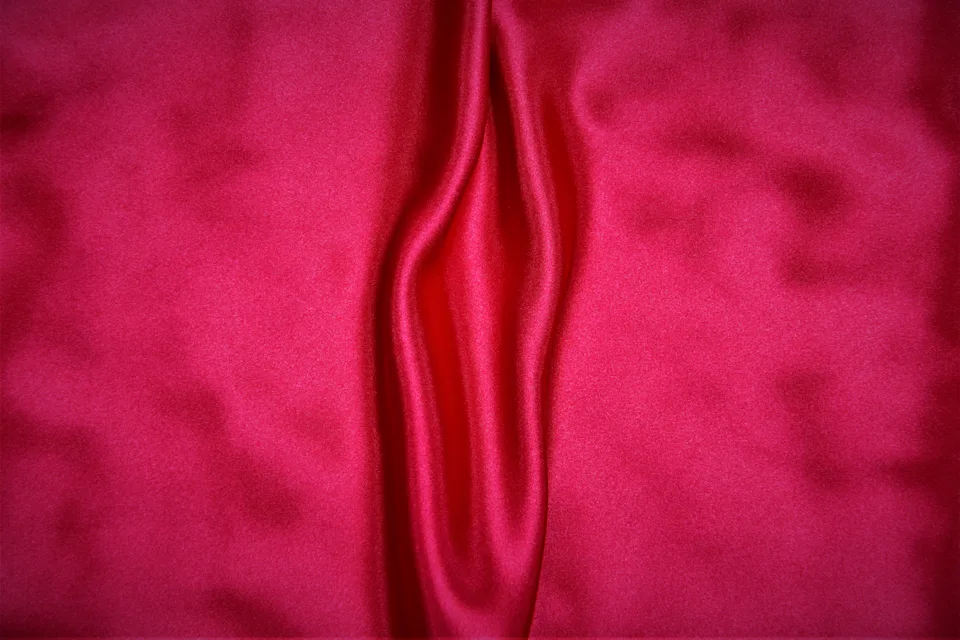The vagina is an important part of the female anatomy, but many people know very little about it.
"When we do exams in the office, we get out a mirror, show women their vaginas and point out the anatomy of the area," Dr. Lauren Streicher, a clinical professor of obstetrics and gynecology at Northwestern University Feinberg School of Medicine and creator of the podcast Dr. Streicher's Inside Information, tells Yahoo Life. "For the majority of women, this is the first time they take a close look."
Many people, Streicher adds, "don't know the correct terminology and anatomy" for describing the area. Dr. Christine Greves, an ob-gyn at the Winnie Palmer Hospital for Women and Babies in Orlando, agrees. "A lot of women don't know a whole lot about their vaginas," she tells Yahoo Life.
As Dr. Jennifer Wider, a women's health expert, tells Yahoo Life, "Whether the fault lies in sex education in the schools, public health messaging, self-reluctance or a combination, not knowing and understanding how the entire body functions and what is normal or abnormal could have health consequences.
"It’s vital to understand our bodies," she says, "even the parts we can’t see all that well."
With that in mind - and in honor of National Vagina Appreciation Day on April 23 - we checked in with some ob-gyns and came back with a few fascinating facts about vaginas.
Fact No. 1: The vagina is self-cleaning
The vagina is sometimes compared to a "self-cleaning oven," as Greves puts it. The bacteria in the vagina include good bacteria called lactobacillus, she says, adding that they work something like a robot vacuum. "It just takes care of your vagina," Greves says. "If you have the appropriate amount of lactobacillus, it's able to combat the bad bacteria and yeast that could overgrow otherwise."
The vagina also sheds its outermost cells to clean itself, flushing them out in discharges and mucus, Wider says.
Fact No. 2: You can't actually 'lose' anything in your vagina
Horror stories float around online about women "losing" tampons in their vagina, but although foreign objects can get stuck in the vagina, losing them isn't possible, Streicher says. "Everybody thinks the vagina is this open-ended road, but the truth is that it's a dead end," she says. "You can't lose a tampon or anything in there, because it stops at the dead end."
For most women, she says, that's the cervix, the lower part of the uterus, which typically only opens during childbirth. In a hysterectomy, the back of the vagina is sewn closed, "So it's still a dead end," Streicher explains.
Fact No. 3: Vagina and vulva are not the same thing
Ob-gyns say they often hear their patients confusing the two. "I still have women come into the office and say that their vagina hurts when they mean their vulva," Greves says. "People just use one term for the entire area."
Streicher agrees. "No one uses the term 'vulva,'" she says. "But the vagina is completely internal. Anything you see is the vulva." Streicher says the reason for this is probably cultural. "Little girls aren't taught the proper terminology, and no one uses it," she says.
Fact No. 4: The depth of the vagina increases during arousal
Most women aren't aware of this, Streicher says, but "During arousal, there is increased blood flow to the genitalia," she explains. "It also lengthens in order to accommodate a penis - biologically, that's why we have sex." In general, "the aroused vagina is longer and a little more dilated than a non-aroused vagina," she adds.
Fact No. 5: Your vagina isn't supposed to be odor-free
Despite the frequent use of douches and other feminine deodorizing products, Streicher points out that it's "normal for a vagina to have a scent." (The use of douches and deodorant sprays are not recommended by ob-gyns, since they can lead to vaginal infections.)
"It's normal for the vagina to have a light scent," Streicher says. However, a strong, foul odor or fishy smell could be the sign of an infection - such as bacterial vaginosis, the most common vaginal infection in women - and should prompt a trip to the doctor, she says.
Fact No. 6: Vaginas and vulvas come in all shapes and sizes
Just like other body parts, every vulva and vagina looks slightly different. "Many women feel self-conscious about the appearance of their vulva, but they shouldn’t," Wider says. "Vulvae come in all different shapes and sizes. There is a wide range of normal."
Greves agrees, noting that the labia (the folds of skin around the vaginal opening) can be longer in some women and asymmetrical. "Everyone is different," she adds.
Latest Stories
-
Roads Minister inspects work on Buipe, Yapei bridges
12 minutes -
Inside the Bundesliga: German football’s heartbeat and its African ties
55 minutes -
Immigration judge says Columbia University student Mahmoud Khalil can be deported
5 hours -
Kenya: Opposition tells Prez Ruto- You are no Kibaki
5 hours -
Uganda and Zimbabwe open Rugby Africa Women’s Cup Division One with wins
6 hours -
Why Salah turned down ‘£500m Saudi move’ for Liverpool stay
6 hours -
I died, went to heaven but God sent me back – Actress Doris Ogala
6 hours -
‘I am not intimidated’ – Rev. Ntim Fordjour breaks silence after botched arrest attempt
7 hours -
NPP will be better if the ‘demons’ are evicted from the party – Prof Frimpong-Boateng
7 hours -
Maison Yusif Fragrance makes history with ‘The Apex’ – Africa’s best selling niche fragrance
9 hours -
Braye hits hat-trick as Medeama beats Dreams FC 4-0
9 hours -
Electricity tariffs up by 14.75%, water by 4.02% in latest review
10 hours -
Francophonie Festival 2025: A celebration of education and culture
10 hours -
Most Ghanaians are like single-phased wires -Prof. Akosa
10 hours -
GUBA leads historic Memphis-Ghana Trade Mission, paving the way for diaspora investment
10 hours

